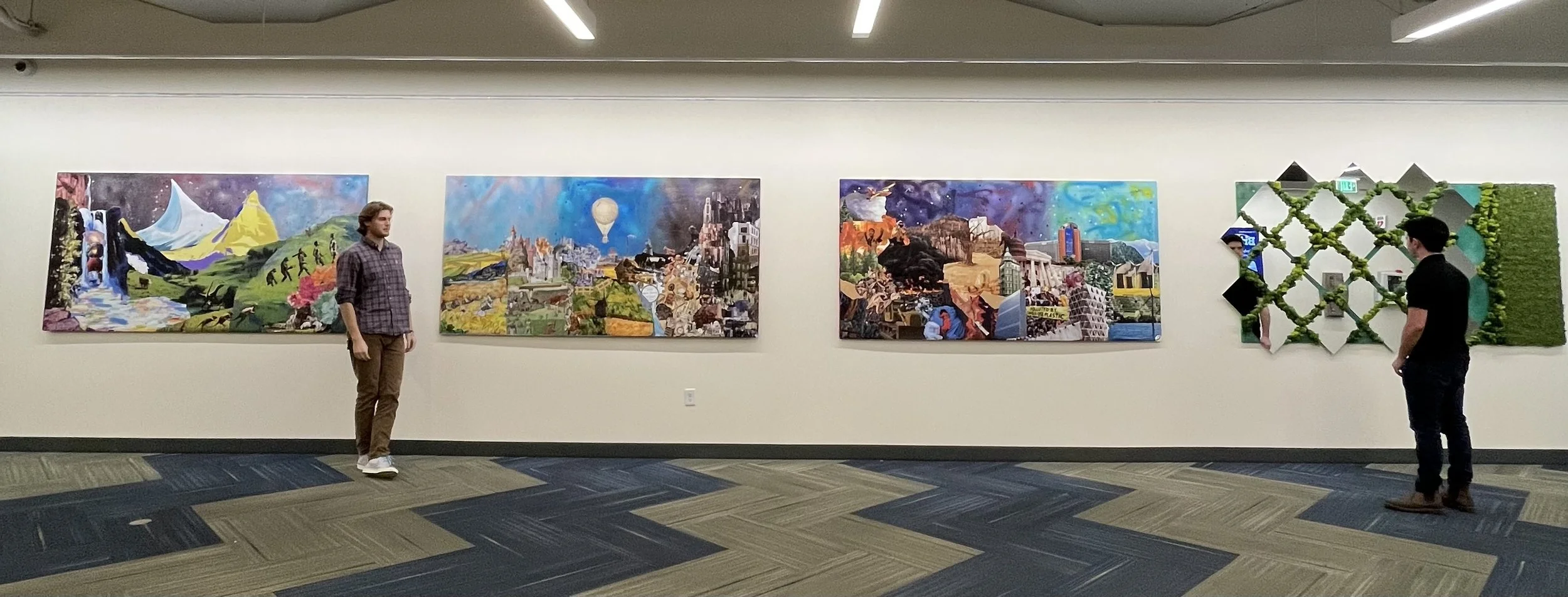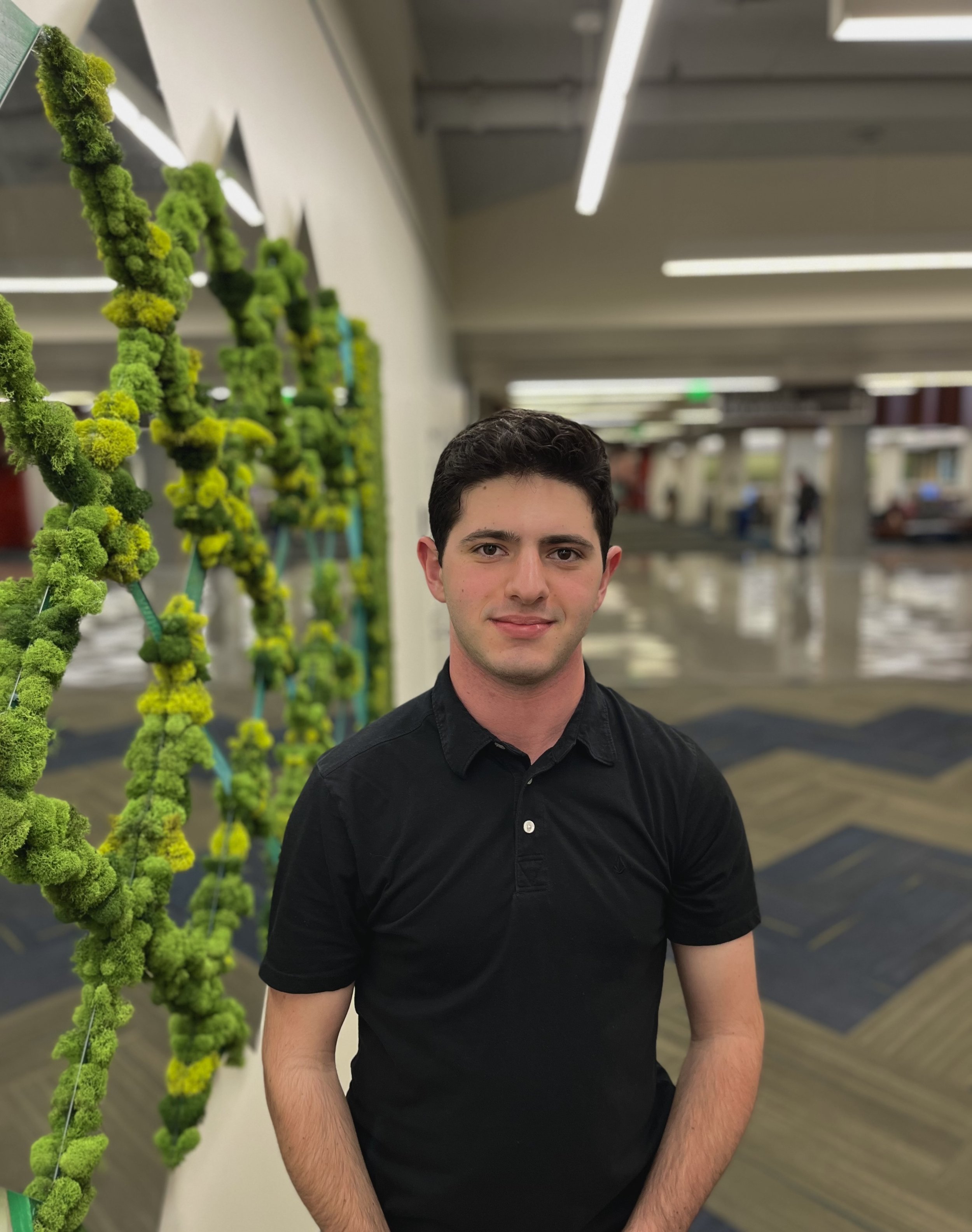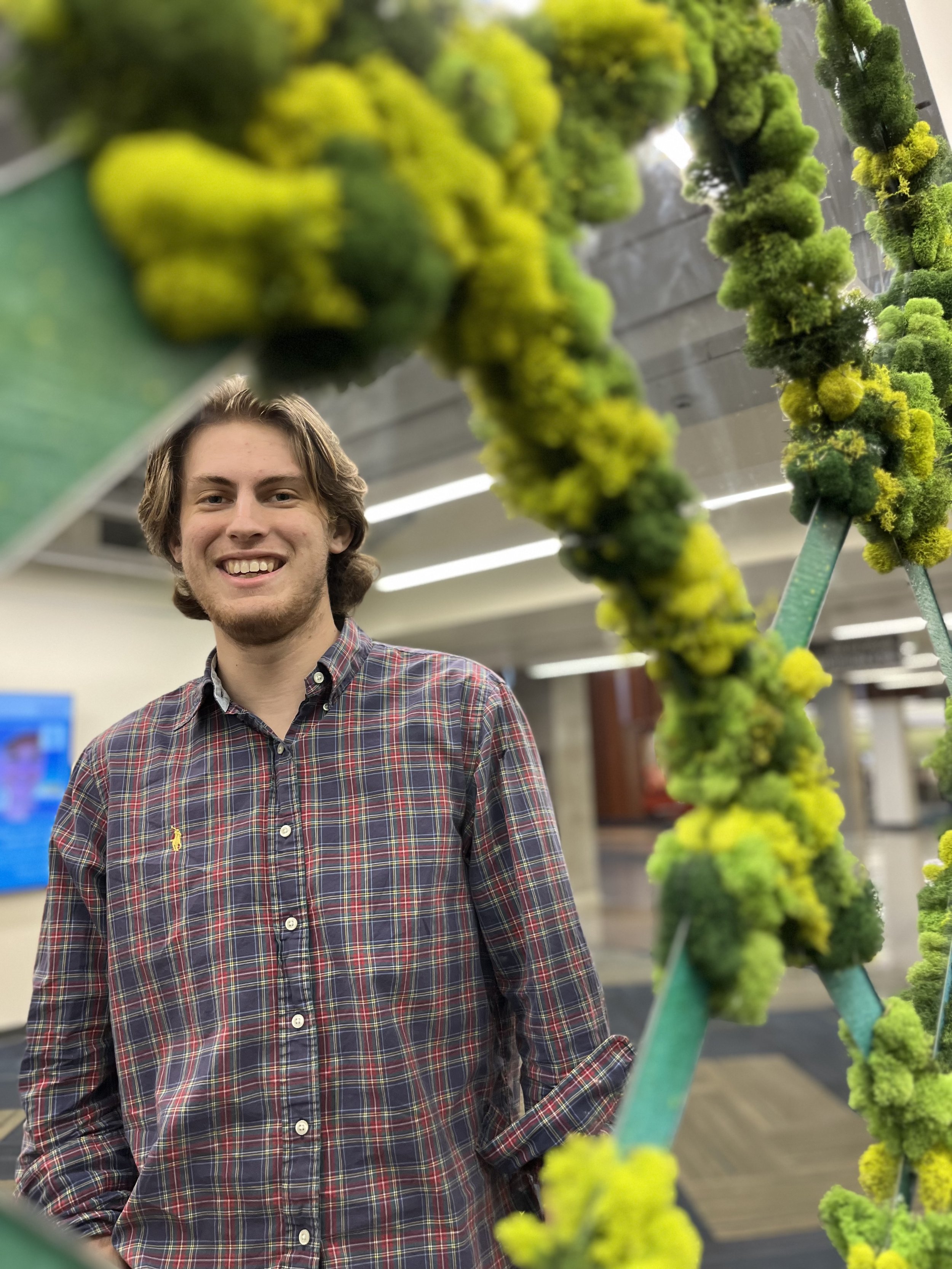By Lian Benasuly
Before any real change can be made in the fight against climate change, people must realize their own stake in the issue, say two UC Santa Barbara students who have curated a new climate change exhibition.
Noah Weiss, a third-year environmental studies student, and Lukas Kraak, fourth-year environmental studies and economics student, spearheaded the development and execution of “Anthoterra,” an exhibition at the UCSB Library, with a title that translates from the Latin as “Human Earth.”
UC Santa Barbara undergraduate students Lukas Kraak, left, and Noah Weiss, right, created "Anthoterra," a UCSB Library exhibition that contemplates the serious impacts of climate change.
“Climate change will require a change of consciousness to really meet the needs,” Kraak said. “Without this, we’re just putting a Band-Aid as a solution.”
The exhibition is located in one of the most high-traffic walkways on campus—the first floor of UCSB’s library. It features four collage-filled panels that are each four feet by eight feet and reflect the relationship between humanity and the environment, starting in pre-human times, Weiss said.
“Anthroterra” has been mounted in conjunction with UCSB Reads 2023 which this year selected the book is “Happy City: Transforming Our Lives Through Urban Design.” It discusses the impacts of city planning and personal decisions on social equity and our overall well-being.
The exhibition will be on display until June 30. It is sponsored by the Green Initiative Fund, a grant from student lock-in fees that funds campus sustainability projects. “Anthroterra” is the largest initiative with the most funding among last year’s projects, according to Weiss.
Weiss and Kraak took an Environmental Leadership Incubator (ELI) course together during the 2021-2022 school year. ELI is a year-long interdisciplinary program that trains UCSB undergraduate students to become environmental leaders. Students learn leadership skills and complete academic coursework in the fall and begin their project implementation under the guidance of a mentor in the winter and spring quarters.
Most groups stop working on their initiatives after the school year ends, but Weiss and Kraak continued working on it throughout the summer and the 2022 fall quarter, Kraak said.
For Weiss, his motivation to continue working on the project after the year ended stemmed from his desire to create a space for people to reflect on their own role in a green future, he said.
In the fourth exhibition panel, Weiss and Kraak put a mirror so people can look at themselves and imagine the steps they can take to lead a more energy-friendly life, Weiss said.
They also included a space for discussion and reflection by posing questions, such as “What actions are you taking to create a healthier world for everyone?” so people who stop by can reflect by writing their thoughts on sticky notes.
“I hope that from going to the exhibition, UCSB community members, faculty and students alike, will be able to reflect on their own individual roles in the climate change movement and reflect on how they can be part of greater collective action,” Weiss said.
Weiss and Kraak ran into some obstacles while developing their idea.
The two students had a general goal—impact the most amount of people as possible—but didn’t know from the beginning which medium would lead to the best results.
They played around with the idea of making a climate change museum that would exhibit artifacts of climate change. But they ultimately decided that powerful and captivating collages would impact the UCSB community at the same, if not a higher, level.
Though they chose collages as the medium for their exhibition, Weiss and Kraak had no previous experience in this medium.
“Two artists with no artistry experience tried to build a massive mural on campus,” Kraak said. “I’ve never made collages or used photoshop so there was a big learning curve.
Their determination and perseverance in creating such a monumental exhibition would not have been enough if it wasn’t for the help they received from their mentors and UCSB staff, Kraak said.
Kristen LaBonte, UCSB librarian, acted as their liaison with the library. She played an instrumental role in helping Weiss and Kraak get the library to host their exhibit, Weiss said.
The two students believe that education is the first step in the fight against climate change.
“Unless we understand the core problem, we can build many renewable energy plants but… we’re just making awkward tradeoffs,” Kraak said. “We want this piece to be really thought-provoking and inspiring for people,” Weiss added.
Lian Benasuly is a fourth-year student studying communication and minoring in professional writing through the journalism track. She is a web and social media intern for the Division of Humanities and Fine Arts.




